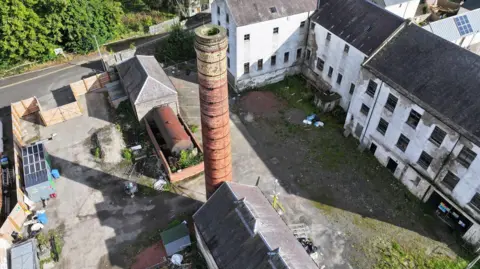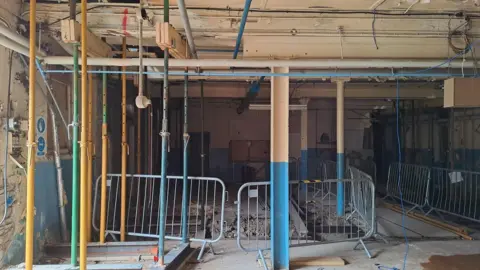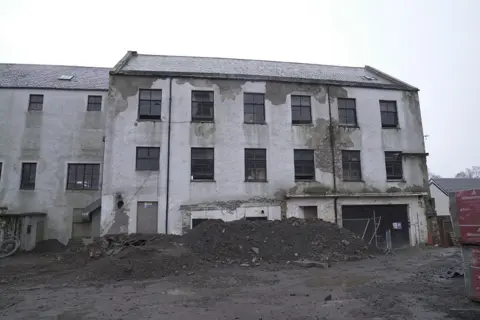Old mill demolition to make way for bike centre
 SOSE
SOSEA historic mill in the Borders is set to be demolished to make way for a new £19m mountain bike innovation centre.
It had been hoped the Caerlee Mill in Innerleithen could be converted but structural issues which were uncovered in the building saw the projected cost rise significantly.
Now South of Scotland Enterprise (SOSE) has developed plans to take down the property instead and replace it with the new facility.
If demolition is approved it is hoped the project - which promises to create hundreds of jobs - could be completed by 2027.
 SOSE
SOSEThe mountain bike centre - being delivered by SOSE with support from Scottish Borders Council and Napier University - is a flagship Borderlands Growth Deal project.
It has been predicted to generate more than £100m for the local economy and create over 400 jobs in the next 10 years.
It was earmarked for the mill site after it was purchased by SOSE and planning permission secured to redevelop the building.
However, the prohibitive cost of that project has seen it dropped and - after a series of consultation meetings - new proposals emerge for demolition and replacement of the building.
If approval is given to take down the main building then a new application would be submitted next year for the innovation centre.
Prof Russel Griggs, who chairs SOSE, said the community had made it clear they wanted the project to stay in Innerleithen and a "positive solution" to be found for the mill site.
He said the revised proposals could "tick both of these requests".
Euan Jardine, leader of Scottish Borders Council and Borderlands Partnership Board member, admitted it was "undoubtedly disappointing" the original plans could not proceed.
However, he said they could still deliver an "internationally significant facility" within budget.
A history of Caerlee Mill
 UK Government
UK GovernmentCaerlee Mill was built by Alexander Brodie in 1788 and added to over the years.
It was the first water-powered textile mill in the Borders and is considered "highly significant" by Historic Environment Scotland, as signalling the start of the industrialisation of the area.
Its success led to a great increase in the local population from 463 in 1841 to 2,313 by 1881 and at its peak it employed about 400 workers.
However, it suffered like many other textile firms in more recent times and more than 100 staff lost their jobs in 2010 when JJ & HB, formerly Ballantyne Cashmere, went into administration.
A management takeover saved the site but it closed for good in 2013 at which time it was Scotland's oldest continually-operating textile mill.
